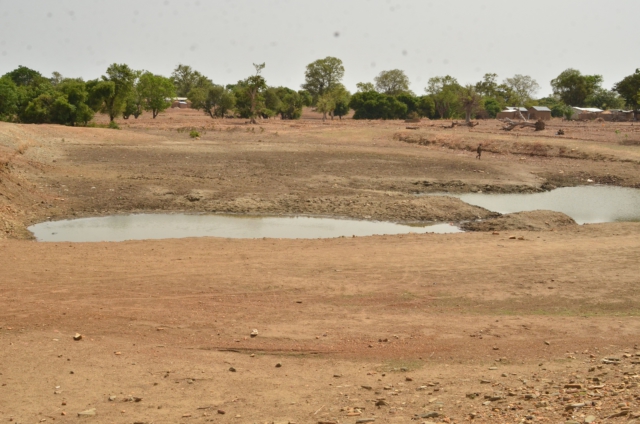Dr. Owusu Afriyie Akoto, a former Minister of the Food and Agriculture Ministry (MOFA), has suggested that with improved seed varieties, Ghana can make strides with its farming output as against the efforts to construct dams.
He says given the expensive nature of constructing dams, it makes economic sense for a developing country like Ghana to rely on the use of improved seed varieties than on dams.
A research by the Northern Patriots in Research and Advocacy (NORPRA), a Convener of Norti Coalition of Civil Society Organisations with funding support from the Africa Center for Energy Policy (ACEP), revealed that the government spent GH¢201, 113,875.00 of the petroleum revenue to construct 285 dams under the flagship programme, One Village One Dam policy.
The research showed that averagely, government spent GH¢670,350.00 on each dam, an amount far higher than the GH¢250,000.00 stated by the government and sighted in the contract award letters.
It also uncovered that GH¢10,064,250.00 of the Annual Budget Funding Amount was spent on paying consultancy services for construction supervision of the dams while payment for construction of some dams exceeded the sums.
But today, the former Minister of Agriculture says the decision to invest in dams must not be the focus for a country like Ghana. He wants the focus to shift to the use of improved seeds.
“It is like buying a VW compared to buying a Mercedes Benz; irrigation is like Mercedes. If you get a trotro from Madina to the ministry, it will get you to your office; somebody will also come from Madina to the office in the ministry in a Mercedes Benz. It depends upon affordability. We talk about irrigation; it is very expensive. We are talking about billions of dollars equivalent if we really have to construct irrigation schemes. So it's not cheap,” he explained.

According to him, what is cheap and can be effective is the use of improved seed varieties to increase productivity on smallholder farms. This, he says, was proven to be the best choice during his tenure as Ghana’s Agriculture Minister.
“But what is cheap and can be effective, is helping smallholder farmers using the same two rainfall patterns that we've had since time immemorial to improve upon the work that they're doing. That, we can afford. At least in the six years, we were able to subsidize the improved seeds, and our output went up substantially.
“When we came in 2017, only 2200 metric tons of improved seeds of the five crops were applied. By the time I left the ministry last year, it had gone to over nearly 50,000 metric tons of improved seeds alone. And each of these, you know, is meant to help the farmers to increase production on their little farms,” he said.
Dr. Afriyie, who is also a flagbearer aspirant of the governing New Patriotic Party, said it is important the country focuses on the use of improved seeds because constructing dams will concentrate substantial investments in one location.
“And we are talking about over three million farmers. So if every one of them is to improve within 5%, you can see the aggregate. So, instead of saying let’s invest one billion in one location, you can spread it amongst a lot of people and transform their lives in their villages and so on and so forth,” he emphasised.
Latest Stories
-
At least 12 dead in Honduras plane crash
35 minutes -
‘Discarded like a dirty rag’: Chinese state media hails Trump’s cuts to Voice of America
50 minutes -
Ghosts of apartheid haunt South Africa as compensation anger brews
1 hour -
Palestinian Columbia student activist speaks out about his arrest
1 hour -
Astronauts Butch and Suni finally back on Earth
1 hour -
Ivory Coast’s mid-crop cocoa output expected to drop around 40% due to long drought, exporters say
2 hours -
Nigeria declares state of emergency in Rivers State over pipeline vandalism
2 hours -
UK’s Department for Business and Trade welcomes Ghanaian healthcare delegation
2 hours -
CSA investigates compromise of President Mahama’s X account
2 hours -
Cedi has been stable against US dollar since February 19 – Finance Minister
2 hours -
Government needs to intentionally support indigenous businesses — Professor Bokpin
3 hours -
Naro murder case: 2 GIS officers face administrative discipline, 2 suspects on bail
3 hours -
‘Truth prevails’ – Anas hails $18M US court victory against Kennedy Agyapong for defamation
5 hours -
FIFA supports massive transformation of Nigeria Technical Centre
6 hours -
‘Politicians cannot take media for granted’ – Anas declares after U.S. court victory over Kennedy Agyapong
6 hours

